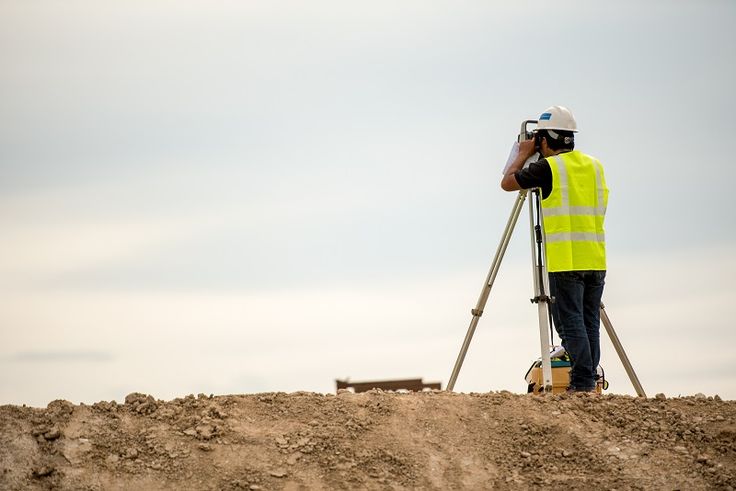
Common Mistakes to Avoid When Hiring a Licensed Surveyor for Your Project
When starting a construction project, land development endeavor, or property boundary assessment, hiring a licensed surveyor is essential. These licensed land surveying professionals play a crucial role in ensuring accurate measurements, boundary delineations, and adherence to legal requirements. However, the process of hiring a licensed surveyor can be daunting, especially if you're unfamiliar with the intricacies of surveying. To help you navigate this process smoothly, we've compiled a list of common mistakes to avoid when hiring a licensed surveyor for your project.
1. Not Verifying Licensure of the land surveyor
The title "licensed surveyor" implies that the individual has met the essential qualifications and holds a valid license to practice surveying. But still, it's important to verify this information before hiring. In some cases, the individuals may misrepresent their credentials or operate without proper licensing. Always ask for proof of licensure and verify it with the relevant regulatory authority.
2. Ignoring Specialization
Surveying encompasses several disciplines that involve land surveying, construction surveying, and topographic surveying, among others. Depending on the requirements of the project, you'll need a licensed land surveyor with expertise in the relevant area. For instance, if you're undertaking a land development project in Trichy, it's advisable to hire a licensed land surveyor in Trichy familiar with the local terrain and regulations.
3. Failing to Check Experience of the licensed land surveyor
Experience plays a major role in the quality of the surveying services that you get. An experienced land surveyor is better equipped to handle complex projects related to land surveying, anticipate challenges, and provide accurate assessments. Before hiring a land surveyor, inquire about their experience, past projects, and familiarity with similar undertakings in your area.
4. Overlooking Reputation and References
Reputation of a land surveyor speaks volumes about their professionalism, reliability, and quality of land surveying. Don't underestimate the importance of checking references and seeking feedback from past clients. Online reviews, testimonials, and word-of-mouth recommendations can offer valuable insights into a surveyor's track record and client satisfaction level.
5. Neglecting Insurance Coverage
Surveying involves inherent risks, that includes errors, omissions, or damage to the property. To protect yourself from potential liabilities, ensure that the surveyor carries enough insurance coverage. This may involve professional liability insurance, general insurance, and compensation insurance for workers. Request proof of insurance before finalizing the hiring process.
6. Clearly define your work Scope and Deliverables
Clear communication is very important to avoid any kind of misunderstandings and ensure that the licensed surveyor surveys and delivers as per your expectations. Clearly define the scope of work, project timelines, deliverables, and any specific requirements upfront. This will help in preventing disputes and ensure that both parties are aligned regarding project objectives and outcomes.
7. Choosing Based Solely on Price
While cost is undoubtedly an important factor in hiring decisions, choosing a licensed land surveyor based solely on price can be a big mistake in the long run. Opting for the lowest bidder without taking in account of qualifications, experience, and reputation may lead to compromise of the quality and accuracy of the surveying results. Instead, focus on value and prioritize expertise and reliability over price alone.
8. Failure to Assess Technology and Equipment
Surveying technology has advanced much in recent years, providing more precise and efficient models for collection and analysis of data. Inquire about the surveyor's use of modern equipment such as GPS, laser scanning, and drones, and how it can benefit your project. A surveyor who stays abreast of technological advancements is better positioned to offer accurate and timely results.
9. Lack of Local Knowledge and Regulatory Compliance
Local regulations, zoning ordinances, and land use laws vary from one area to another. It's crucial to hire a surveyor who is familiar with the specific regulations governing your project location. A land surveyor in Trichy with local knowledge can navigate regulatory requirements more effectively, helping you avoid costly delays and legal complications.
10. Disregarding Communication and Availability
Effective communication is key to a successful land surveying project. Ensure that the licensed surveyor is accessible, responsive, and willing to address your concerns and queries promptly. Discuss communication channels, frequency of updates, and points of contact to maintain clarity and transparency throughout the project duration.
11. Underestimating Project Complexity and Timeline
Every project comes with its own unique challenges and complexities, which can impact the land surveying process and timeline. Be practical about the scope of work and potential obstacles that may arise during the project. Discuss these factors with the surveyor upfront to establish realistic timelines and expectations for project completion.
12. Skipping the Contractual Agreement
A detailed contractual agreement is very important to protect both the parties' interests and establish clear terms and obligations. Ensure that the contract outlines the scope of work, project deliverables, timelines, payment terms, and any other relevant provisions. Review the contract carefully before signing and seek legal advice if necessary to avoid any ambiguities or discrepancies.
13. Neglecting Post-Survey Support and Documentation
Surveying doesn't end with the completion of fieldwork; it also includes documentation, reporting, and potentially ongoing support. Discuss how the land surveyor will offer post-survey documentation, such as survey plats, reports, and digital files. Clarify any questions regarding data retention, updates, or additional services that may be required after the initial surveying phase.
Conclusion
By taking in account these mentioned points, you can further improve your hiring process and ensure a successful collaboration with your selected licensed surveyor. Remember to prioritize factors such as technology adoption, local knowledge, communication, project complexity, contractual agreements, and post-survey support when evaluating potential surveying professionals. With thorough research and attention to detail, you can make an informed decision that leads to accurate, reliable land surveying results for your project by a proper licensed land surveyor.

